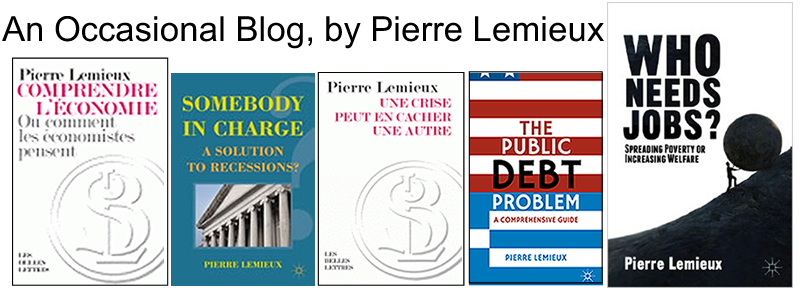Suppose I were a pundit who could influence the vote of 500,000 Americans. There would then be a reasonable probability that I would be decisive in tomorrow’s election, that is, that my actions—my recommendation, in this case—would carry the election. Whom would I recommend that my readers vote for?
A good argument can be made that Barack Obama is more dangerous than Mitt Romney for our liberty and prosperity (or what remains of them). It is true that Romney has tried hard, as the campaign progressed, to make himself more and more indistinguishable from Obama, but let’s neglect this factor and assume that the Republican candidate is the least dislikeable of all the Romneys we know.
This does not imply that I should recommend voting for Romney. Another factor to consider is the influence that the next four years will have on public opinion. It is likely that the sovereign debt problem in Europe as well the looming and similar American public debt problem will translate into difficult economic times over the next four years. If this is true, it would be better that the electorate (in both America and elsewhere) blame the Obama’s soft socialism rather than the capitalism they would mistakenly identify with Romney. This further uncertainty would increase the difficulty of my recommendation.
Fortunately, the choice between Romney and Obama would not exhaust the possibilities. I could recommend that my 500,000 followers vote for Gary Johnson, the Libertarian candidate. The majority of their votes, although by no means all, would be diverted from Romney, which could possibly amount to giving the victory to Obama. But even in that case, a strong message would have been sent to the political class that messing with our liberties can be punished. Hearing this message, a victorious Obama may actually not be worse than a president Romney let loose. This argument of sending the right message becomes even more enticing as my recommendation would also apply to the candidates’ respective parties in tomorrow’s simultaneous congressional and state elections.
Thus, if I were a pundit with control over 500,000 votes, I would recommend voting for Libertarian candidates in all of tomorrow’s elections—with perhaps a few exceptions for any Republican or Democrat candidate with strong libertarian credentials.
My only other alternative as a pundit who can bring a large number of people to vote under (my) influence would be the following two steps. I could first influence them to vote for what I think is the strategically good choice: Romney because he is less bad hic et nunc, or Obama because he won’t taint capitalism in the longer run. I could then hide in the voting booth and vote the best moral choice (which might not be the same as my recommendation) since expressing my opinion with one vote has no influence and thus carries no cost to me. But this alternative would be out of the question. If I want to vote in a morally correct way, I presumably don’t want to be morally inconsistent between what I recommend to others and what I do myself.
Suppose now that I cannot influence 500,000 voters, but only a few readers. I am still in a better position than the average voter since I indirectly control a few votes instead of just one. But the number of votes I control will likely not be more decisive (they won’t affect the election results) than if I had only one. What would then be my recommendation?
Since any recommendation I make is not going to change the election results—there would be no difference on the night of November 6, 2012 if I dropped dead just before posting this article—I would recommend that my readers vote for what is right. If you express a useless, non-influential opinion, it costs nothing to tell the truth instead of trying to game the system. I would then recommend to vote Libertarian.
Of course, any of my rational Libertarian readers would have reached this decision himself—except those who, mistakenly in my opinion, choose not to vote. If you have the possibility of expressing a true opinion at low cost to you, you should do it. So go and vote Libertarian!
In reality, most electors vote because they simply enjoy expressing an opinion, any opinion, or because they find shouting with the crowd as entertaining in elections as during hockey games. They vote under pervert influence. (On these voting issues, see my “The Public Choice Revolution”, Regulation, Fall 2004.) Democratic elections should not be draped in a moral fabric that they don’t have. They are mainly useful for kicking out the rascals without bloodshed.
